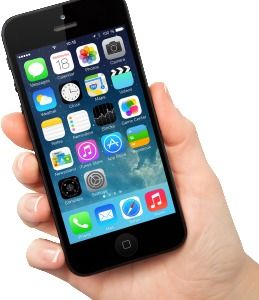According to The Clarion Project, a political information bureau that warns westerners of the growing threat from radical Islam, ISIS has published a ‘kill list’ that includes the names, addresses and emails of 15,000 Americans.
So far, this is interesting news, but it is not really new. I found ISIS, Hezbollah and Al-Qaida kill lists going back at least 8 years. This 2012 bulletin complains that NBC would not release the names contained on a kill list.
A kill list is newsworthy, and the Clarion article is interesting—but the article has more “facts” with which the publisher wishes to generate mob frenzy…
- It explains that 4,000 of the names on the Kill List have been leaked by hackers
- It echos a report by Circa News that the FBI has decided to not inform citizens that they are on the ISIS kill list.
In a clear effort to whip up and direct audience indignation, it asks readers to take a one-question poll. Which answer would you choose?
- I have a right to know if I am on an ISIS kill list
- I do not need to know if my name is on the ISIS kill list.
The FBI can protect me without my knowing
Let’s ignore, for a moment, that the editorial comment appended to answer #2 involves a misleading assumption (i.e. that your safety is related to inclusion on the list and that you need or would be the focus of FBI protection). Even before this cheap tactical mis-direction, I am frustrated with the sleazy promotional and shock tactics of The Clarion Project (formerly, stopradicalislam.org).

This a pity—because the Clarion Project also creates and distributes valuable educational literature. For a few years, they were the credible standard in defining and issuing warnings about the dangers of radical Islam—especially as it is seeded and spread from within. The Clarion Project also produces terrific “wake-up” videos and documentary evidence about life under Sharia law and the shocking intolerance, misogyny and disrespect for human rights that characterize ISIS. It highlights the brutal tactics that emerge when regional governments are controlled by religious zealots. Like any repressive dictatorship, ISIS rules through fear instilled by bands of roaming thugs and by turning everyone into snitches.*
But the Kill List Poll points to a growing trend at Clarion. Four years ago, I objected to Meira Svirsky’s inflammatory report that criticizes a DOJ official for refusing to answer a complex and subtle question with a Yes-or-No response. The Clarion Project has a critical and noble goal. But pushing the emotional hot buttons of an audience by over simplifying or vilifying subtleties undermines the entire organization. In the end, it only demonstrates that they are bullies. And just like Donald Trump, bullying plays only to mobs. It is no the way to win hearts and minds.
My Answer to the Poll
- I do not need to know if my name is on the ISIS kill list
Rationale
Both ISIS leaders and radical clerics have repeatedly declared that *all* Americans, American allies, Jews and non-believers may be killed on the spot or taken as sex slaves to pleasure suicide bombers and Jihadist soldiers.  They state that doing this fulfills Jihad and prophecy and is sanctioned by the Holy Qur’an. With this in mind, I the choice of poll responses is political, selfish and offensive. It assumes that readers are idiots…
They state that doing this fulfills Jihad and prophecy and is sanctioned by the Holy Qur’an. With this in mind, I the choice of poll responses is political, selfish and offensive. It assumes that readers are idiots…
The multiple choice answers are incomplete and misleading. Of course, Americans have a right to know if they are on a kill list—and, in fact, we already know We are all on that list!
About Radical Islam
The warning bell at the heart of Clarion journalism is an alarm that must be heard—very loudly. Radical Islam is a cancer and not just figuratively. It exhibits all earmarks of a spreading cancer that invades and attaches itself to its neighbors while building offensive outposts far from the region that it started. It has not yet been contained and excised. It presents a significant ongoing threat to our safety, our health and our wealth.
—Philip Raymond is a Lifeboat board member and columnist. He hosted The
Bitcoin Event and is co-chair of the Cryptocurrency Standards Association
* I could illustrate my point with photos of men being burned in a cage, the abduction of preteen school girls from their homes (they were give to soldiers), a child slitting the throat of captives, or a women having her nose cut off because she was raped by a stranger. After all, in the twisted world of radical Islam, anyone who is different, unique gay, Christian, or not in agreement with the local Imam are to be tortured and killed.
But I can similarly point to even this comparatively mild video. It shows a Turkish music store under attack last week (June 2016), because a group of thugs suspects that the band signing autographs represents secular hedonism—or that that fans must be consuming alcohol during Ramadan.


 So the FBI wants Apple to remove that restriction. That is reasonable. They should, if it is possible to do so without undue burden. The FBI should hand over the iPhone to Apple and Apple should help them to crack it.
So the FBI wants Apple to remove that restriction. That is reasonable. They should, if it is possible to do so without undue burden. The FBI should hand over the iPhone to Apple and Apple should help them to crack it.